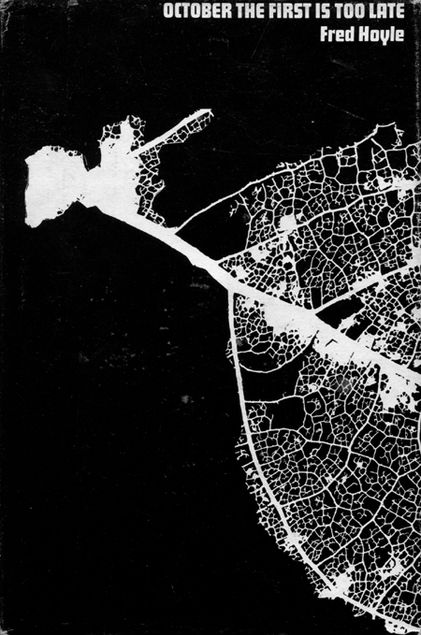Book Review: October the First is Too Late
 October the First is too Late
October the First is too Late
1966
178

Renowned scientist John Sinclair and his old school friend Richard, a celebrated composer, are enjoying a climbing expedition in the Scottish Highlands when Sinclair disappears without a trace for thirteen hours. When he resurfaces with no explanation for his disappearance, he has undergone an uncanny alteration: a birthmark on his back has vanished. But stranger events are yet to come: things are normal enough in Britain, but in France it's 1917 and World War I is raging, Greece is in the Golden Age of Pericles, America seems to have reverted to the 18th century, and Russia and China are thousands of years in the future.
Against this macabre backdrop of coexisting time spheres, the two young men risk their lives to unravel the truth. But truth is in the mind of the beholder, and who is to say which of these timelines is the 'real' one? In October the First Is Too Late (1966), world-famous astrophysicist Sir Fred Hoyle (1915-2001) explores fascinating concepts of time and consciousness in the form of a thrilling science fiction adventure that ranks among his very best.
A really interesting concept, but I found the writing wasn’t quite up to scratch. Though I enjoyed the book, it’ll never make the reread pile – in fact, it’s likely to make the charity shop pile. A real shame, because it was so promising.
The problems with the narration are evident from the first chapter, which is overburdened with with “telling” rather than “showing”. Characters are introduced never to be seen again, and the action rockets across Europe though the plot doesn’t kick in until we’re halfway through Scotland.
It picks up a bit after the first carrot of plot is dangled (if we’re being brutally honest, the real thrust of the plot isn’t until over a third into the book). Again, though, more characters that subsequently disappear. The plot demands it, but fails to follow up on the psychological ramifications. Apart from the narrator, there’s only one other consistent character, and he’s absent from a good third of the novel.
The telling returns in the final chapters, rushing us through argument that, if we take more time to look at, are rather flawed. No further discussion is allowed, the ramifications are barely touched, and the narrator rounds up the novel so sparsely you suspect even if he had made the opposite decision it would have had no further affect on him. It doesn’t feel like a decision at all.
Maybe if I knew more about classical music some of this book would have made more sense. The long digressions would have bored me less, no doubt. However, it wouldn’t have fixed the pacing or characterisation. I’ll forgive a lot in older SciFi, which is usually trying to make a broader point, but even that is lost in musical allegory. I wanted to like this so much – it has a great concept and a frankling amazing title – which is why I find myself being more lenient in my rating than I am in my review, but of the SFBC books I’ve acquired recently this is easily the poorest.
